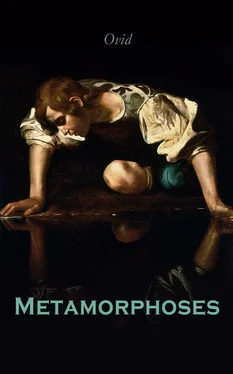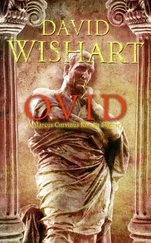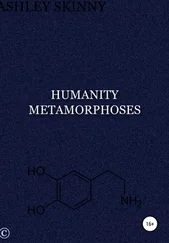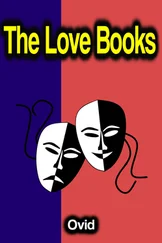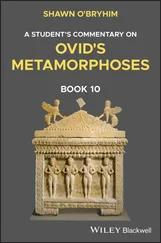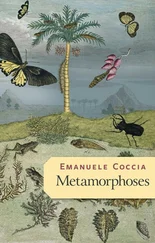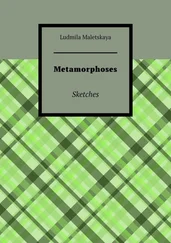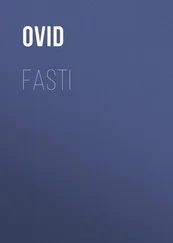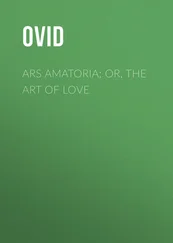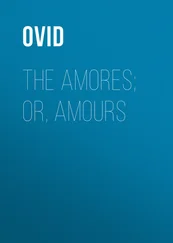Ovid - Metamorphoses
Здесь есть возможность читать онлайн «Ovid - Metamorphoses» — ознакомительный отрывок электронной книги совершенно бесплатно, а после прочтения отрывка купить полную версию. В некоторых случаях можно слушать аудио, скачать через торрент в формате fb2 и присутствует краткое содержание. Жанр: unrecognised, на английском языке. Описание произведения, (предисловие) а так же отзывы посетителей доступны на портале библиотеки ЛибКат.
- Название:Metamorphoses
- Автор:
- Жанр:
- Год:неизвестен
- ISBN:нет данных
- Рейтинг книги:3 / 5. Голосов: 1
-
Избранное:Добавить в избранное
- Отзывы:
-
Ваша оценка:
- 60
- 1
- 2
- 3
- 4
- 5
Metamorphoses: краткое содержание, описание и аннотация
Предлагаем к чтению аннотацию, описание, краткое содержание или предисловие (зависит от того, что написал сам автор книги «Metamorphoses»). Если вы не нашли необходимую информацию о книге — напишите в комментариях, мы постараемся отыскать её.
Metamorphoses — читать онлайн ознакомительный отрывок
Ниже представлен текст книги, разбитый по страницам. Система сохранения места последней прочитанной страницы, позволяет с удобством читать онлайн бесплатно книгу «Metamorphoses», без необходимости каждый раз заново искать на чём Вы остановились. Поставьте закладку, и сможете в любой момент перейти на страницу, на которой закончили чтение.
Интервал:
Закладка:
109 The Cyllenian God. ]—Ver. 713. Mercury is so called from Cyllene, in Arcadia, where he was born.
110 That his sight was wrapped. ]—Ver. 714. Clarke translates ‘Adopertaque lumina somno,’ ‘and his peepers covered with sleep.’
111 The Argive mistress. ]—Ver. 726. Clarke renders ‘Pellicis Argolicæ,’ ‘of the Grecian miss.’
112 The linen-wearing throng. ]—Ver. 747. The priests, and worshippers of Isis, with whom Io is here said to be identical, paid their adoration to her clothed in linen vestments. Probably, Isis was the first to teach the Egyptians the cultivation of flax.
113 Epaphus. ]—Ver. 748. Herodotus, in his second book, tells us, that this son of Jupiter, by Io, was the same as the Egyptian God, Apis. Eusebius, quoting from Apollodorus, says that Epaphus was the son of Io, by Telegonus, who married her.
114 Clymene. ]—Ver. 756. She was a Nymph of the sea, the daughter of Oceanus and Tethys.
115 Merops. ]—Ver. 763. He was king of Ethiopia, and marrying the Nymph Clymene, was either the stepfather of Phaëton, or, as some writers say, his putative father.
116 To our regions. ]—Ver. 773. Ethiopia, which, in the time of Ovid, was generally looked upon as one of the regions of the East.
117 The rays of the Sun. ]—Ver. 778. ‘Ignibus sidereis,’ means here the ‘heat,’ or ‘fire of the sun,’ the sun being considered as a ‘sidus,’ or ‘luminous heavenly body.’
BOOK THE SECOND.
Table of Contents
FABLE I.
Phaëton, insulted by Epaphus, goes to the Palace of Apollo, to beseech him to give some token that he is his son. Apollo, having sworn, by the river Styx, to refuse him nothing that he should desire, he immediately asks to guide his chariot for one day. He is unsuccessful in the attempt, and, the horses running away, the world is in danger of being consumed.
The palace of the Sun was raised high, on stately columns, bright with radiant gold, and carbuncle that rivals the flames; polished ivory covered its highest top, and double folding doors shone with the brightness of silver. The workmanship even exceeded the material; for there Mulciber had carved the sea circling round the encompassed Earth; and the orb of the Earth, and the Heavens which hang over that orb. There the waves have in them the azure Deities, both Triton, sounding with his shell , and the changing Proteus, and Ægeon, 1pressing the huge backs of whales with his arms; Doris, 2too, and her daughters, part of whom appear to be swimming, part, sitting on the bank, to be drying their green hair; some are seen borne upon fishes. The features in all are not the same, nor, however, remarkably different: they are such as those of sisters ought to be. The Earth has upon it men and cities, and woods, and wild beasts, and rivers, and Nymphs, and other Deities of the country. Over these is placed the figure of the shining Heaven, and there are six Signs of the Zodiac on the right door, and as many on the left.
Soon as the son of Clymene had arrived thither by an ascending path, and entered the house of his parent, thus doubted of; he immediately turned his steps to the presence of his father, and stood at a distance, for he could not bear the refulgence nearer. Arrayed in a purple garment, Phœbus was seated on a throne sparkling with brilliant emeralds. On his right hand, and on his left, the Days, the Months, the Years, the Ages, and the Hours were arranged, at corresponding distances, and the fresh Spring was standing, crowned with a chaplet of blossoms; Summer was standing naked, and wearing garlands made of ears of corn; Autumn, too, was standing besmeared with the trodden-out grapes; and icy Winter, rough with his hoary hair.
Then the Sun, from the midst of this place, with those eyes with which he beholds all things, sees the young man struck with fear at the novelty of these things, and says, “What is the occasion of thy journey hither ? What dost thou seek, Phaëton, in this my palace, a son not to be denied by his parent?”
He answers, “O thou universal Light of the unbounded World, Phœbus, my father, if thou grantest me the use of that name; and if Clymene is not concealing an error under a false pretext, give me, my parent, some token, by which I may be believed to be really thy progeny; and remove this uncertainty from my mind.” Thus he spoke; but his parent took off the rays shining all around his head, and commanded him to come nearer; and, having embraced him, he says, “ And neither art thou deserving to be denied to be mine, and Clymene has told thee thy true origin; and that thou mayst have the less doubt, ask any gift thou mayst please, that thou mayst receive it from me bestowing it. Let the lake, by which the Gods are wont to swear, and which is unseen, even by my eyes, be as a witness of my promise.”
Hardly had he well finished, when he asks for his father’s chariot, and for the command and guidance of the wing-footed horses for one day. His father repented that he had so sworn, and shaking his splendid head three or four times, he said, “By thine have my words been made rash. I wish I were allowed not to grant what I have promised! I confess, my son, that this alone I would deny thee. Still, I may dissuade thee: thy desire is not attended with safety. Thou desirest, Phaëton, a gift too great, and one which is suited neither to thy strength, nor to such youthful years. Thy lot is that of a mortal; that which thou desirest, belongs not to mortals. Nay , thou aimest, in thy ignorance, at even more than it is allowed the Gods above to obtain. Let every one be self-satisfied, if he likes ; still, with the exception of myself, no one is able to take his stand upon the fire-bearing axle-tree. Even the Ruler of vast Olympus, who hurls the ruthless bolts with his terrific right hand, cannot guide this chariot; and yet , what have we greater than Jupiter? The first part of the road is steep, and such as the horses, though fresh in the morning, can hardly climb. In the middle of the heavens it is high aloft, from whence it is often a source of fear, even to myself, to look down upon the sea and the earth, and my breast trembles with fearful apprehensions. The last stage is a steep descent, and requires a sure command of the horses . Then, too, Tethys 3herself, who receives me in her waves, extended below, is often wont to fear, lest I should be borne headlong from above . Besides, the heavens are carried round 4with a constant rotation, and carry with them the lofty stars, and whirl them with rapid revolution. Against this I have to contend; and that force which overcomes all other things, does not overcome me; and I am carried in a contrary direction to the rapid world. Suppose the chariot given to thee ; what couldst thou do? Couldst thou proceed, opposed to the whirling poles, so that the rapid heavens should not carry thee away? Perhaps, too, thou dost fancy in thy mind that there are groves, and cities of the Gods, and temples enriched with gifts: whereas , the way is through dangers, and the forms of wild beasts; 5and though thou shouldst keep on thy road, and be drawn aside by no wanderings, still thou must pass amid the horns of the threatening Bull, and the Hæmonian 6bow, and before the visage of the raging Lion, and the Scorpion, bending his cruel claws with a wide compass, and the Crab, that bends his claws in a different manner; nor is it easy for thee to govern the steeds spirited by those fires which they have in their breasts, and which they breathe forth from their mouths and their nostrils. Hardly are they restrained by me, when their high-mettled spirit is once heated, and their necks struggle against the reins. But do thou have a care, my son, that I be not the occasion of a gift fatal to thee, and while the matter still permits, alter thy intentions. Thou askest, forsooth, a sure proof that thou mayst believe thyself sprung from my blood? I give thee a sure proof in thus being alarmed for thee ; and by my paternal apprehensions, I am shown to be thy father. Lo, behold my countenance! I wish, too, that thou couldst direct thy eyes into my breast, and discover my fatherly concern within! Finally, look around thee, upon whatever the rich world contains, and ask for anything out of the blessings, so many and so great, of heaven, of earth, and of sea; and thou shalt suffer no denial. In this one thing alone I beg to be excused, which, called by its right name, is a penalty, and not an honor; thou art asking, Phaëton, a punishment instead of a gift. Why, in thy ignorance, art thou embracing my neck with caressing arms? Doubt not; whatever thou shalt desire shall be granted thee (by the Stygian waves I have sworn it); but do thou make thy desire more considerately.”
Читать дальшеИнтервал:
Закладка:
Похожие книги на «Metamorphoses»
Представляем Вашему вниманию похожие книги на «Metamorphoses» списком для выбора. Мы отобрали схожую по названию и смыслу литературу в надежде предоставить читателям больше вариантов отыскать новые, интересные, ещё непрочитанные произведения.
Обсуждение, отзывы о книге «Metamorphoses» и просто собственные мнения читателей. Оставьте ваши комментарии, напишите, что Вы думаете о произведении, его смысле или главных героях. Укажите что конкретно понравилось, а что нет, и почему Вы так считаете.
